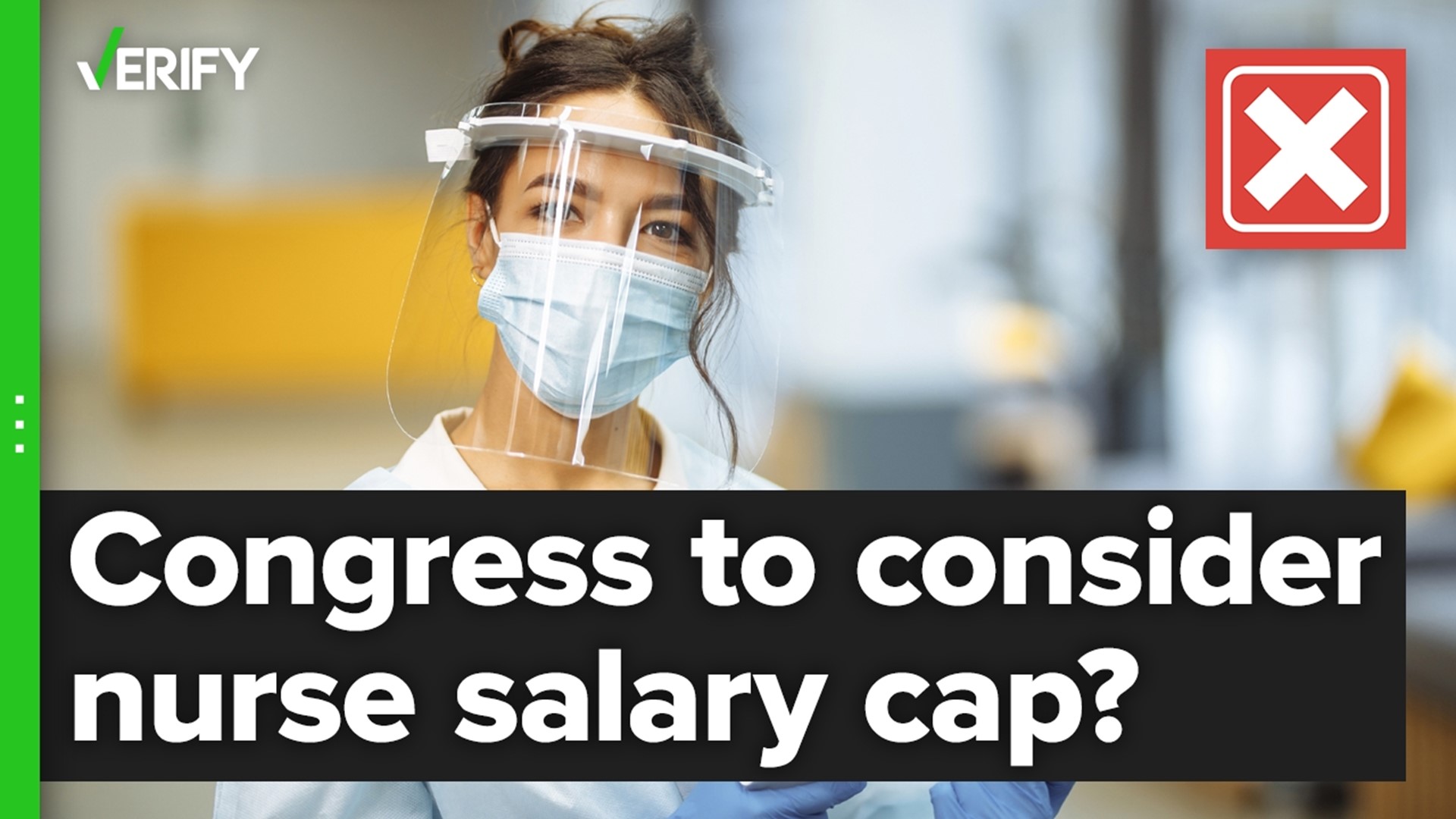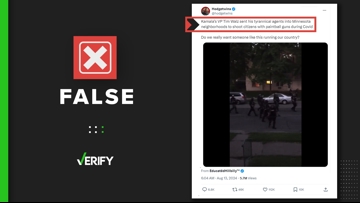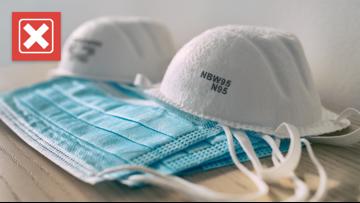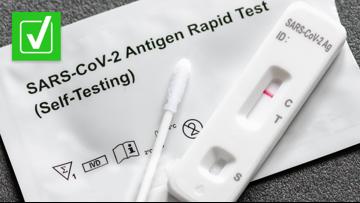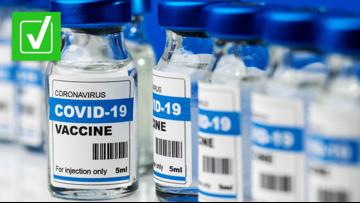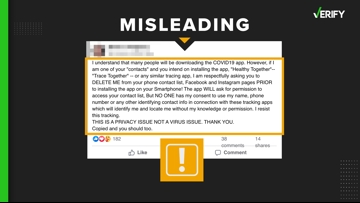Hospitals are struggling to meet staffing demands. It’s been a rising problem since COVID-19 first swept the nation nearly two years ago, and one that’s been exacerbated by the rapid spread of the omicron variant.
As a result, some nurses have started commanding higher wages. But numerous viral posts on social media claim that could be ending soon.
This one, retweeted more than 13,000 times, suggests that Congress is considering a “nurse salary cap.” A Reddit post upvoted more than 12,000 times makes similar claims.
THE QUESTION
Is Congress considering legislation to limit how much nurses can get paid?
THE SOURCES
THE ANSWER
No, Congress is not considering legislation to limit how much nurses can get paid.
WHAT WE FOUND
Nearly all of the viral posts point back to one of two letters sent to the White House. One was sent by the American Hospital Association. Another was from a bipartisan group of nearly 200 members of Congress, led by Rep. Peter Welch (D-Vt.) and Rep. Morgan Griffith (R-Va.).
Neither letter explicitly calls for a salary cap on nurses. In fact, neither letter is about all nurses.
They’re specifically about travel nurses. These nurses don’t work for any one hospital. They work for an agency and are contracted out to hospitals to fill gaps where needed.
With so much burnout and COVID-19 exposure, there have been a lot of gaps, so travel nurses are in high demand. Many hospital nurses have quit their jobs to go work for an agency as a travel nurse, which may be offering higher pay or more flexibility.
The healthcare staffing agencies in turn have increased their fees, and that’s what’s got hospitals, and some members of Congress, worried.
“We are writing because of our concerns that certain nurse-staffing agencies are taking advantage of these difficult circumstances to increase their profits at the expense of patients and the hospitals that treat them,” the congressional letter reads.
The letters ask the White House to investigate these agencies to see if they’re doing anything illegal, like colluding to raise prices, or unfairly pocketing the fees as profit rather than passing it onto nurses.
But nowhere do they request Congress pass any sort of legislation, let alone explicitly call for a salary cap.
The AHA sent VERIFY a statement that says, in part, “It is important to note that the AHA has not advocated in any forum for a cap on travel nurse wages – we, like the members of Congress, have called upon the [Federal Trade Commission] to determine if there is anticompetitive conduct at the root of the tremendous price hikes.”
Welch’s office similarly said he “does not support capping nurses’ pay and never has.”
Griffith took it a step further, releasing a statement that read, in part, “Disinformation continues to circulate that I have introduced a bill to cap nurses’ pay. That is false. There is no bill, and I do not support capping nurses’ pay.”
The American Staffing Association, a trade group that includes healthcare staffing agencies, says it’s aware of no federal proposals in this realm.
“No, not at all, that’s not even being discussed,” said ASA Vice President of Government Relations Toby Malara.
For its part, the ASA also says the increased costs are an outcome of supply and demand, not nefarious activity.
“Obviously, the demand is unlike anything we've ever seen before. And the supply of nurses is at an all-time low,” said Malara. “And so we're seeing these two factors meet, and we're seeing nurses demand more pay for what they are doing, because of this awful ordeal that they've been through for the past two years. So the rates have gone up that we charge our clients.”
The Federal Trade Commission has not publicly responded to either letter.
More from VERIFY: No, the US government is not ending daily COVID death reporting
